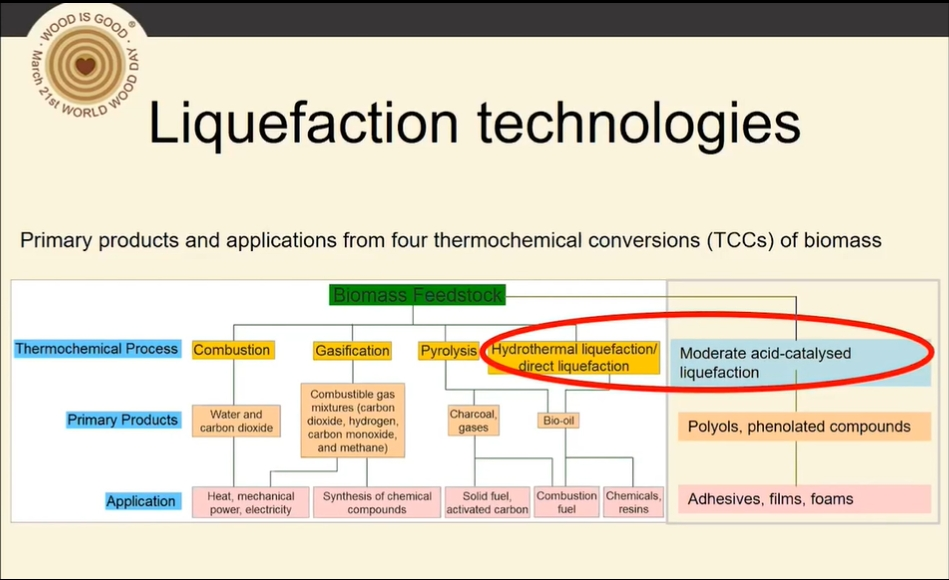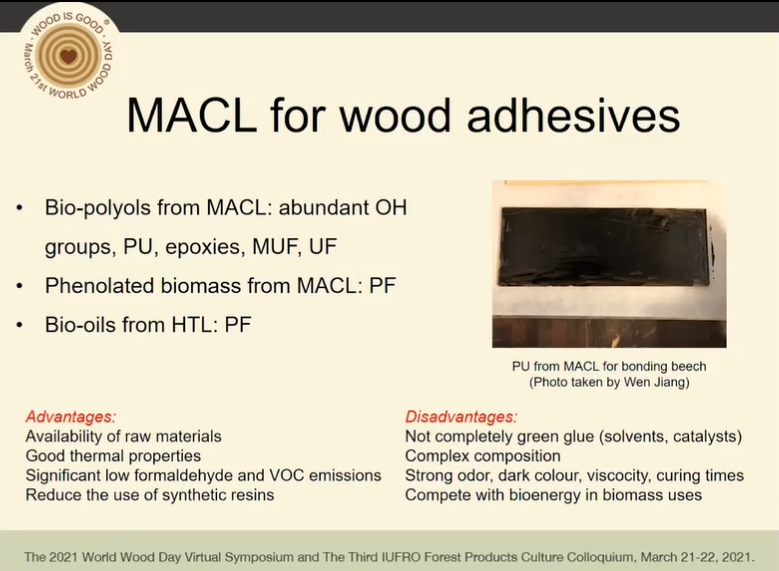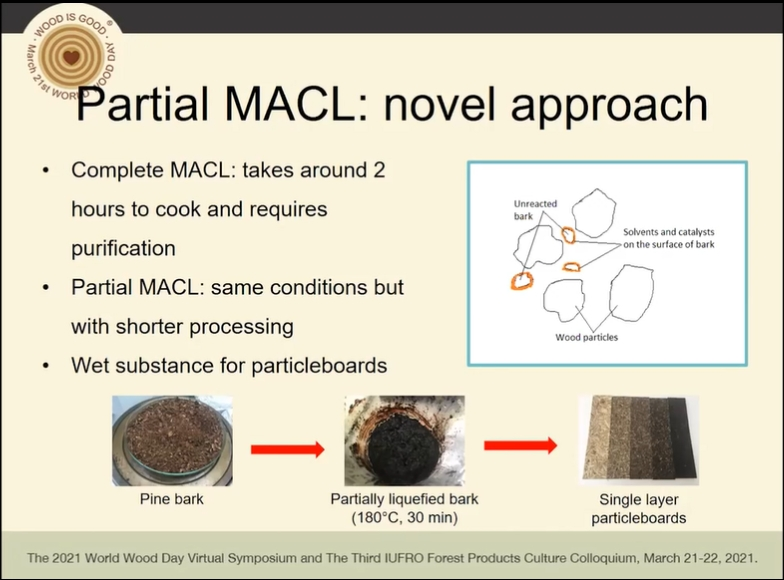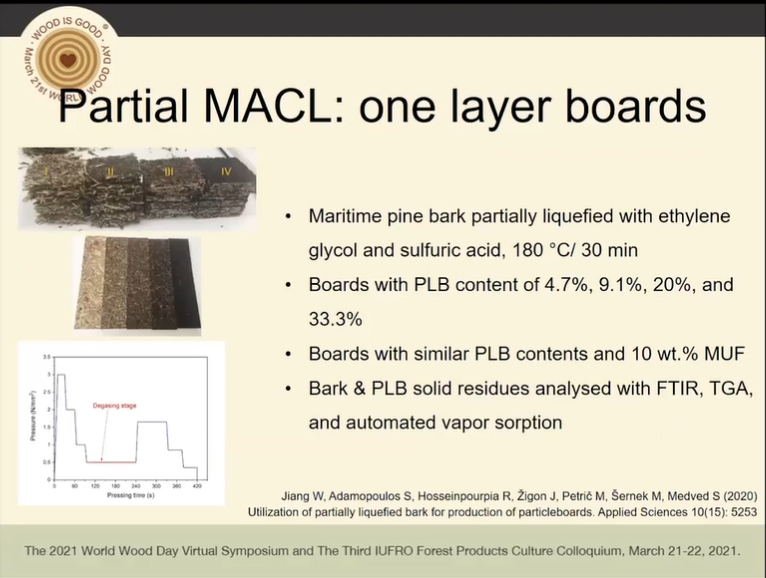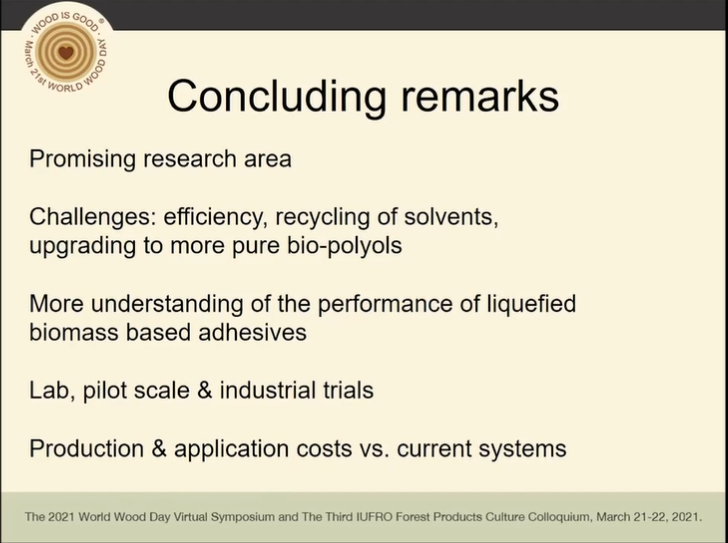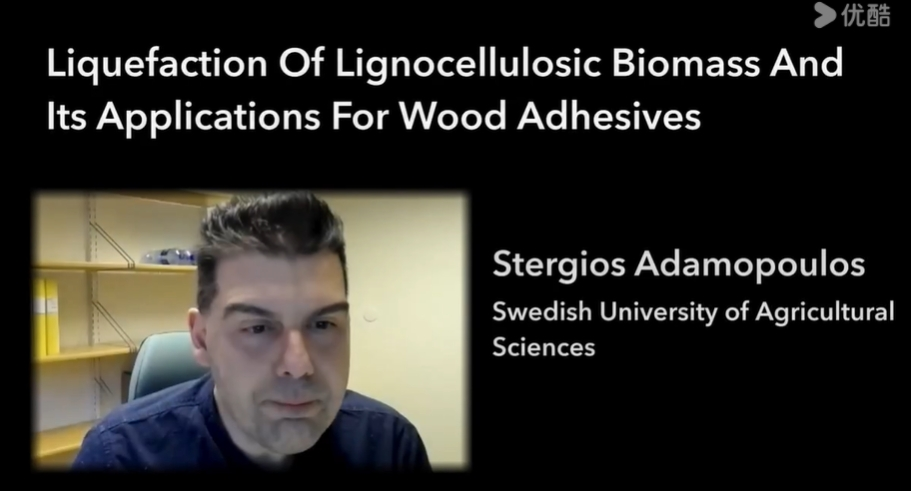会议名称:“2021世界木材日”研讨会暨第三届国际林联(IUFRO) 林产品文化研究组讨论会
会议时间:2021年3月21日
报告嘉宾:Stergios Adamopoulos
嘉宾简介:Professor of Swedish University of Agricultural Sciences
摘要:
Liquefaction is a useful method of turning whole biomass into liquids, and finds applications in many sectors like polymers and energy. This presentation reviews the different liquefaction technologies and focuses on moderate acid-catalyzed liquefaction (MACL) towards recent advances in the development of sustainable wood adhesives. On the other hand, hydrothermal liquefaction (HTL) produces bio-oils as primary products, and solid residues and gases as by-products. HTL has been researched more than MACL concerning its processes, bio-oil production and its upgrading. HTL has low oil yields and complex products, and thus MACL has been developed with organic solvents at atmospheric pressure and lower temperature than HTL for producing desired chemicals and polymers. MACL depends on the solvent types used such as polyhydric alcohols and phenols. Bio-polyols from alcohol liquefaction as well as phenolated biomass from phenol liquefaction have been used in the production of liquefied biomass-based adhesives. Although promising results have been obtained at laboratory scale, such systems face challenges for industrial uses. Future research should focus on a better understanding of the reaction pathways and optimization of the liquefaction processes. This also includes novel approaches for the production of partially liquefied biomass and its further utilization in manufacturing wood composites. This new liquefaction concept has been demonstrated just recently, and can open up possibilities for using the liquefaction products from abundant biomass sources in combination or without synthetic adhesives. The developments are in line with the current pressures on the wood panel industry to use healthier and more sustainable adhesives.
责任编辑:iwcs25H


 992
992